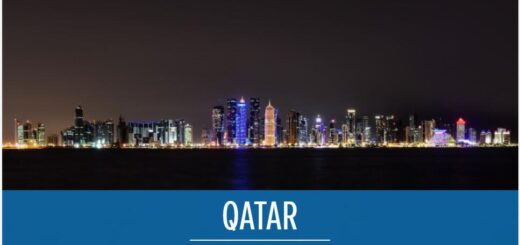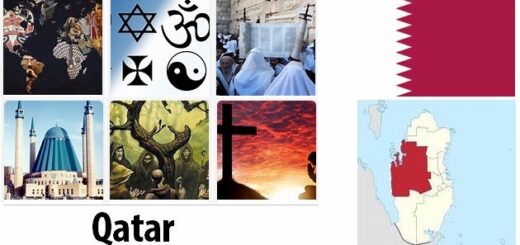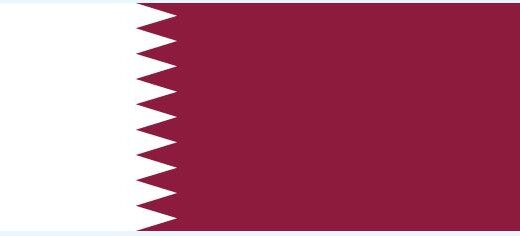State Structure and Political System of Qatar
Officially, Qatar is a sovereign Arab state with an absolute monarchy. The country has a provisional Constitution adopted on April 2, 1970. All power in the country belongs to the emirs from the Al Thani dynasty and can only be inherited by sheikhs from this family. According to the administrative division, the country consists of 10 municipalities (baladiyat): Ad-Dawwa, Al-Juwariya, Al-Jumaliya, Al-Khor, Al-Wakra, Ar-Rayan, Jarayan al-Batna, Ash-Shamal, Umm Said, Umm Salal. All state institutions and departments are subordinate to the head of the municipality on its territory, and its functions include the conduct of all administrative affairs. The ruler of Qatar is Emir Hamad bin Khalifa Al Thani (since June 1995). The executive power in the country is the Council of Ministers (17 people since September 1992), which is also headed by the Emir. He appoints and dismisses ministers, bearing before him personal responsibility for the policy of the state and the work of the ministries. In addition, the emir is the supreme commander of the country. In 1972, the emir Khalifa bin Hamad Al Thani, in accordance with the adopted provisional Constitution, created a special Consultative Council (Shura). Since 1988, this body has consisted of 35 people, elected for a term of 4 years and appointed by the emir from among the representatives chosen under limited suffrage. According to the Constitution, they have the right to discuss and make recommendations on the adoption of laws developed by the Council of Ministers, to request ministries on foreign and domestic political issues, including draft budgets. Their functions include consideration of state and civil cases, after which they are submitted for the approval of the ministers and the emir. Check equzhou for political system of Qatar.
In March 1999, Qatar held its first elections of 29 members to the Central Municipal Council, the next elections were held in April 2003. In July 1999, the emir created a special committee of 32 people to draft a permanent constitution for the country. In July 2002, the project was submitted to the Emir for consideration, after which it was fully approved in a referendum in April 2003. The country banned the activities of any political parties and trade unions. Discrimination on racial, ethnic or religious grounds is also prohibited and punishable by law. The highest court of the country is the Court of Appeal, whose decisions are approved by the Emir and are not subject to revision.
The leading business organizations include the largest banks and industrial companies in the country: Qatar Petroleum Company (QP), Qatar Petrochemical Company (QAPCO), QATARGAS, Qatar Steel Company (QASCO), Qatar Industrial Company (QIMCO), etc. Currently, domestic policy the country is aimed at diversifying the industrial base, using local natural resources, reducing dependence on imported goods, and increasing the types of export products. The nationalization of the oil industry in 1973, after which the country’s income increased sharply, allowed the government to carry out a number of significant changes in the social sphere as well. Reforms were carried out in the field of health care, housing construction, utilities, pensions and benefits. In the beginning. 1980s a new major program was implemented to improve the social life of the population, all services for medical care and education became free. In May 1989, at the direction of the Emir, a Planning Council was formed to improve the coordination of plans for the socio-economic development of Qatar. The goal was announced – to reduce dependence on the oil sector, but even now the economy of Qatar remains completely focused on the export of oil and natural gas.
In the field of foreign policy, Qatar adheres to the principles of the non-aligned movement, of which it has been a member since 1971. Qatar advocates a dialogue between countries based on the principles of mutual trust and non-interference in the affairs of sovereign states. Of great importance for the foreign policy of Qatar are its relations with the Arab countries. Qatar has the closest ties with neighboring Saudi Arabia. In 1992, Qatar signed a defense pact with the United States. A similar agreement was concluded with the UK (1993) and France (1994). The ever-strengthening ties of Qatar with the United States and France show the desire of the authorities to gain broad military support from the leading world powers. During the 2nd Gulf War (March-April 2003), Qatar provided the United States with its military bases and took a pro-American position.
The ever-increasing political tension in the region forced the government of China to pay close attention to the creation of an effective system of self-defense. The armed forces of the country consist of the army, naval and air forces. Their total number as of August 2001 is 12.33 thousand people. The country has compulsory military service for all men between the ages of 18 and 35. The term of military service is 12-24 months. In 2000/01, defense spending increased to $723 million, representing 10% of GDP. The main supplier of weapons to Qatar is France (tanks, aircraft), the UK has a smaller share (warships). Check homeagerly for democracy and human rights of Qatar.
Qatar has diplomatic relations with the Russian Federation (established with the USSR in 1988).



